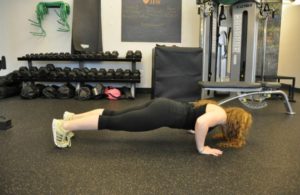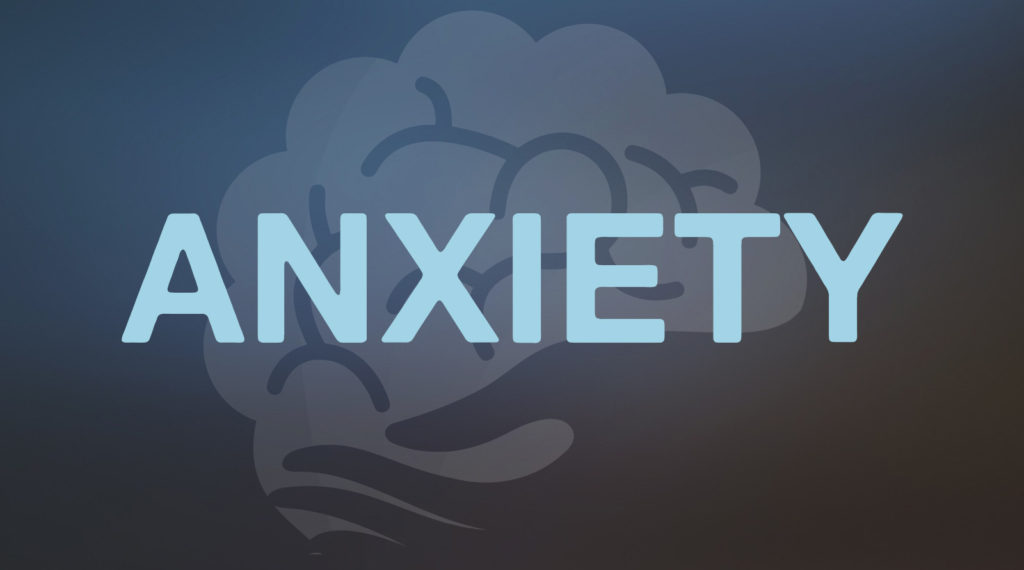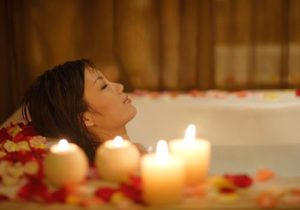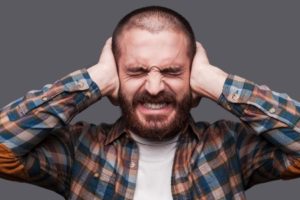Click here to view all Different Brains content about anxiety
What Are Anxiety Disorders?
Anxiety is a normal human emotion that everyone experiences at one time or another, for instance, when faced with a problem at work, before taking a test, or making a big decision. Anxiety disorders, however, are different. The distress they cause is so great that it interferes with a person’s ability to lead a normal life. For people with anxiety disorders, worry and fear are constant and overwhelming, and can be crippling.
The types of anxiety disorders include panic disorder, social anxiety disorder, specific phobias, and generalized anxiety disorder.
Many brain researchers believe that anxiety disorders may be caused by problems in the functioning of brain circuits that regulate fear and other emotions. Studies have shown that severe or long-lasting stress can change the way nerve cells within these circuits transmit information from one region of the brain to another. Other studies have shown that people with certain anxiety disorders have changes in certain brain structures that control memories linked with strong emotions.
Anxiety disorders run in families, meaning they can be at least partly inherited from one or both parents, like the risk for heart disease. Moreover, certain environmental factors — such as a traumatic event — can trigger an anxiety disorder in people who have an inherited susceptibility to developing the disorder.
Anxiety disorders affect millions of adult Americans. They occur slightly more often in women than in men.
NBA’s Kevin Love On Battling Anxiety (3 min 36 sec):
Click here for more Week in Neurodiversity!
How to Deal with Anxiety and Anxiety Disorders
Today, people that have anxiety are finding ways to get help and here are 5 tips on how to deal with anxiety and anxiety disorders:
Tip 1: Do Yoga
 Yoga is not only good for your body, it is also good for your mind. It has been a helpful method for people that want to lower their anxiety level and make themselves more calm. There have been numerous of studies in the past that talked about how yoga can reduce a person’s anxiety and stress. The reason why this tip has been successful is not only for the poses that they do, but for the breathing. Because breathing is a good contributor in yoga, people feel more relaxed and less stressed.
Yoga is not only good for your body, it is also good for your mind. It has been a helpful method for people that want to lower their anxiety level and make themselves more calm. There have been numerous of studies in the past that talked about how yoga can reduce a person’s anxiety and stress. The reason why this tip has been successful is not only for the poses that they do, but for the breathing. Because breathing is a good contributor in yoga, people feel more relaxed and less stressed.
Source: https://www.verywellmind.com/yoga-for-panic-disorder-2584114
Tip 2: Try Aromatherapy
Aromatherapy, also known as oil therapy, is a type of treatment which utilizes natural plants for healing a person both physically and mentally. This treatment uses different kinds of oil to heal a person’s mind, body, and soul. Like yoga, aromatherapy has also shown that it can reduce anxiety and stress according to a study from 2016. And lastly, there are also special kind of oils that a person with high anxiety can use. These oils that are good for reducing anxiety are lavender, chamomile, neroli, and more to chose from.
Source: https://www.healthline.com/health/anxiety/essential-oils-for-anxiety
Tip 3: Learn to Manage Your Triggers
People that have anxiety are triggered by anything that makes them feel stressful. These complications can be work-related situations, drinking caffeine or alcohol, having depression, and trauma. The only way to stop that trigger from happening is to identify that piece which causes the anxiety to occur. This will help them to control their anxiety.
Source: https://www.healthline.com/health/mental-health/how-to-cope-with-anxiety#long-term-strategies
Tip 4: Exercise
 Getting exercise is important for a human being every single day. Not only does it help them physically, it helps them mentally which is good for reducing a person’s anxiety level. Different kinds of healthy exercises for reducing anxiety include jogging, riding a bike, and dancing three to five times a week for at least thirty minutes. These exercises have shown that it has helped people to reduce their anxiety levels according to research studies. And another thing that people can do to reduce their anxiety level while exercising is by getting a friend or partner to help them out.
Getting exercise is important for a human being every single day. Not only does it help them physically, it helps them mentally which is good for reducing a person’s anxiety level. Different kinds of healthy exercises for reducing anxiety include jogging, riding a bike, and dancing three to five times a week for at least thirty minutes. These exercises have shown that it has helped people to reduce their anxiety levels according to research studies. And another thing that people can do to reduce their anxiety level while exercising is by getting a friend or partner to help them out.
Source: https://adaa.org/tips
Tip 5: Get Enough Sleep
 Sleeping has a way to reduce a person’s anxiety level. That way of doing that is called deep sleep. According to a study in 2014, researchers have showed that people who deep sleep are likely to have reduced levels of anxiety and stress. The same study also showed that people who had sleepless nights are likely to experience high levels of anxiety and stress. So get ready for tonight because you are going to have the best sleep of your entire life!
Sleeping has a way to reduce a person’s anxiety level. That way of doing that is called deep sleep. According to a study in 2014, researchers have showed that people who deep sleep are likely to have reduced levels of anxiety and stress. The same study also showed that people who had sleepless nights are likely to experience high levels of anxiety and stress. So get ready for tonight because you are going to have the best sleep of your entire life!
Source: https://www.medicalnewstoday.com/articles/326926#Deep-sleep-protects-against-anxiety
Anxiety Disorder Resources:
The Anxiety and Depression Association of America is a national nonprofit organization dedicated to the prevention, treatment, and cure of anxiety and mood disorders, OCD, and PTSD and to improving the lives of all people who suffer from them through education, practice, and research.
Freedom From Fear is a national non-profit mental illness advocacy organization and a resource site about anxiety and depression.
The Social Anxiety Association is a nonprofit organization that promotes the understanding and treatment of social anxiety disorder.
The MoodGym teaches cognitive behavioral therapy skills to individuals suffering from anxiety and depression.
The National Alliance on Mental Illness aims to increase awareness about mental illnesses and improve the quality of life of individuals suffering from them. Its website defines depression and anxiety and discusses the types and components of medications used to treat these illnesses.




